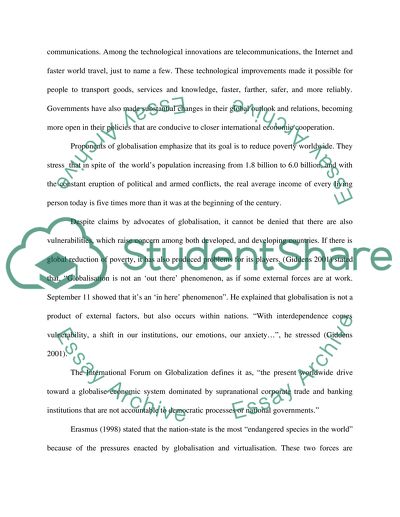Cite this document
(“Globalisation: Transforming the Nation-State Essay”, n.d.)
Globalisation: Transforming the Nation-State Essay. Retrieved from https://studentshare.org/social-science/1506250-globalisation-transforming-the-nation-state
Globalisation: Transforming the Nation-State Essay. Retrieved from https://studentshare.org/social-science/1506250-globalisation-transforming-the-nation-state
(Globalisation: Transforming the Nation-State Essay)
Globalisation: Transforming the Nation-State Essay. https://studentshare.org/social-science/1506250-globalisation-transforming-the-nation-state.
Globalisation: Transforming the Nation-State Essay. https://studentshare.org/social-science/1506250-globalisation-transforming-the-nation-state.
“Globalisation: Transforming the Nation-State Essay”, n.d. https://studentshare.org/social-science/1506250-globalisation-transforming-the-nation-state.


